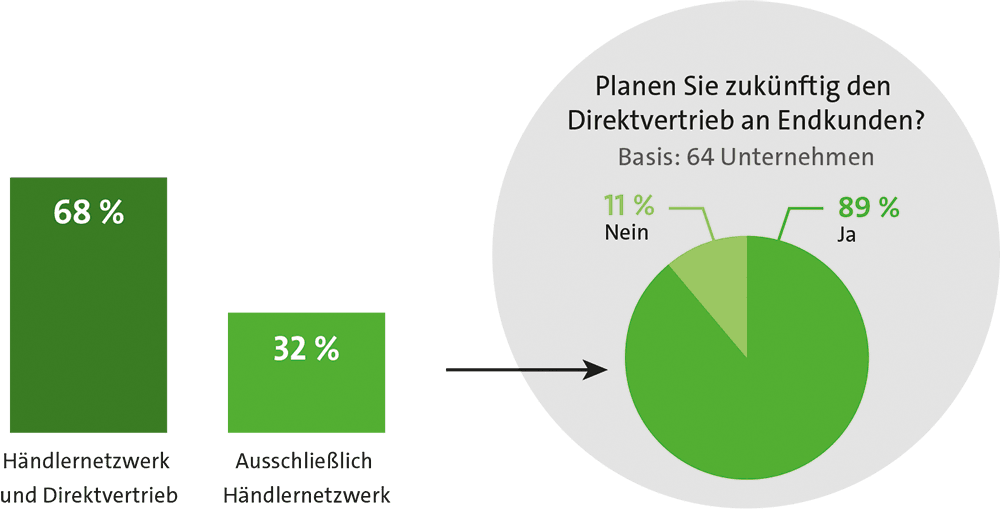Direct Sales and Customer Experience


More and more B2B companies are facing the challenge of placing not only their direct business partners but also end customers at the center of their business activities. A change is taking place in industrial sectors in particular: manufacturers who have traditionally operated in the background and sold products via partners are becoming active shapers of the customer experience (CX) and are increasingly in direct contact with end customers.
Industry goes Consumer
The boundaries between B2B (business-to-business) and B2C (business-to-consumer) are becoming increasingly blurred. If you want to remain successful, you need to actively shape positive customer experiences and strategically integrate customer experience into your corporate culture.
The "Industry goes Consumer" study was designed in collaboration with Sybit and conducted by Techconsult. 200 companies with 200 or more employees from the industrial, transportation, construction and wholesale sectors in German-speaking countries were surveyed on the topic of customer experience. Deficits are still apparent, and silo structures and areas of tension along the value chain are also making the implementation of D2C (direct-to-consumer) more difficult: While companies try to address the end customer directly and emotionally, retailers and distributors are still dominated by hard factors such as availability and price.

Current sales structures, basis: 200 companies.
Sales channels have changed fundamentally in recent years. B2B is on the rise - the direct line to the end customer is becoming crucial. The "Industry goes Consumer" study shows: Those who still sell exclusively through partners today risk being left behind. However, the path to the end customer seems complex to many - but also full of opportunities. The transition to B2B2C is in full swing. 89% of companies that still sell exclusively via partners are planning to move into direct sales.
The reason is clear: if you understand the end customer, you can retain them in the long term - and differentiate yourself from the competition. But getting there is challenging. There is a lack of digital structures, clear processes and internal expertise. 94% see a need for advice when setting up D2C structures.
At the same time, customer experience is recognized as a decisive success factor - but is still too rarely implemented consistently. The study also shows that technological overload is slowing down many initiatives. Focusing too much on the end customer can jeopardize relationships with partners. A strategic balance is therefore needed - and a clear CX vision. What does this mean for your company?
Investing in CX, data and direct sales today not only ensures customer proximity, but also economic success. The full study provides well-founded insights and concrete recommendations for action. Direct sales is already an important addition to traditional retail structures. The majority, 68% of the companies surveyed, pursue a hybrid approach in which both indirect sales via partners and direct sales to end customers play a role. The remaining 32% currently sell their products exclusively via dealer or partner networks.
Partner networks fall short
Many companies recognize the strategic importance of direct sales, but lack clear implementation paths, digital structures and internal expertise. An effective direct-to-consumer model requires a profound organizational realignment along direct customer needs and integrated data landscapes.
In addition, new competencies are being developed in marketing, sales and IT as well as e-commerce and service.
In order to overcome this conflict of objectives and successfully establish direct sales, companies must create the conditions internally to enable customer centricity across all areas and at the same time ensure partnership-based coordination along the entire value chain.
Companies that want to pursue D2C models must invest in integrated data landscapes, align their organizational structure with direct customer relationships and strategically anchor customer experience. Only then will D2C become a real competitive differentiator. External consultants and IT service providers can support companies in overcoming technological hurdles, creating data-driven solutions for consistent customer experiences and successfully establishing D2C models.
Continue to the partner entry:







